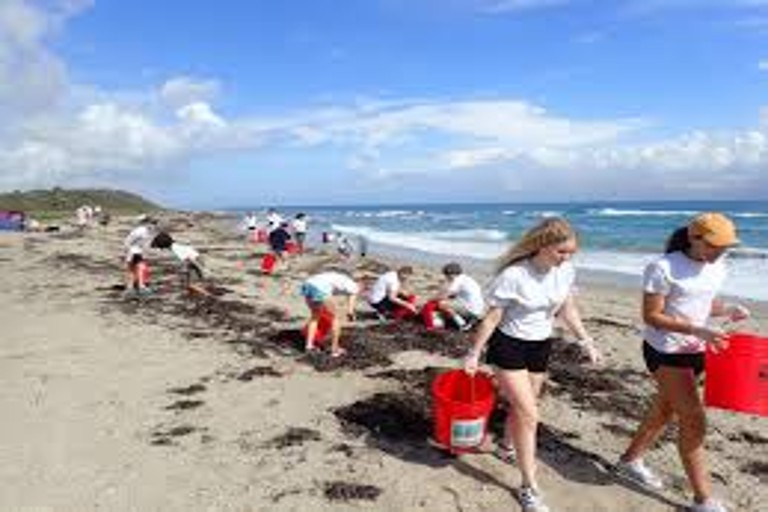Nature & Outdoors
Coastal Cleanup Yields Surprising Finds Along Nova Scotia’s Eastern Shore
Volunteers collected over 400 kilograms of debris during a recent shoreline cleanup near Lawrencetown, with notable discoveries including vintage fishing gear and a 1980s license plate.
Elise Turner | October 11, 2025 at 06:36 AM

Over the weekend, a volunteer-driven coastal cleanup along Nova Scotia’s eastern shoreline yielded both a significant haul of litter and some unexpected historical artifacts. Organized by the Atlantic Conservation Society, the event drew over 70 participants who combed beaches near Lawrencetown and Seaforth, removing everything from plastic bottles to antique marine debris.
In total, more than 400 kilograms of waste were collected, much of it comprised of fishing line, food wrappers, and broken glass. Volunteers used mesh bags and gloves to gather the material, carefully separating recyclables from landfill waste. The effort was part of the group’s semi-annual initiative to promote ocean health and protect marine wildlife.
However, the real buzz came when a group of volunteers stumbled upon several rusted lobster traps and what appeared to be a license plate from the 1980s, partially buried in the sand. “It was like unearthing a time capsule,” said event coordinator Jamie Liu. “You never know what the tides will leave behind.”
Among other finds were vintage soda cans, fragments of porcelain, and even a message in a bottle—though its contents had been too waterlogged to decipher. The items have been cataloged and handed over to local historical societies for further examination.
Marine biologist Tanya Roy, who assisted in the effort, emphasized the importance of these cleanups beyond the spectacle. “These plastics and ghost gear pose real threats to wildlife. Seabirds, turtles, and seals often ingest or become entangled in debris left behind by humans,” she said.
The event also featured educational booths and local vendors, turning the cleanup into a community celebration. Children learned about marine ecosystems through hands-on activities, while food trucks and acoustic music kept spirits high throughout the chilly morning.
Local support was strong, with businesses sponsoring equipment and refreshments. One family-run kayak company even offered free rentals to volunteers for a post-cleanup paddle around the bay. “It’s our coastline too,” said owner Richard Evans. “Keeping it clean is a shared responsibility.”
As participants departed with sandy shoes and full trash bags, organizers expressed hope that the event would inspire broader environmental awareness. “This isn’t just about a single day of action,” Liu said. “It’s about building habits that preserve the beauty and health of our coasts for generations to come.”